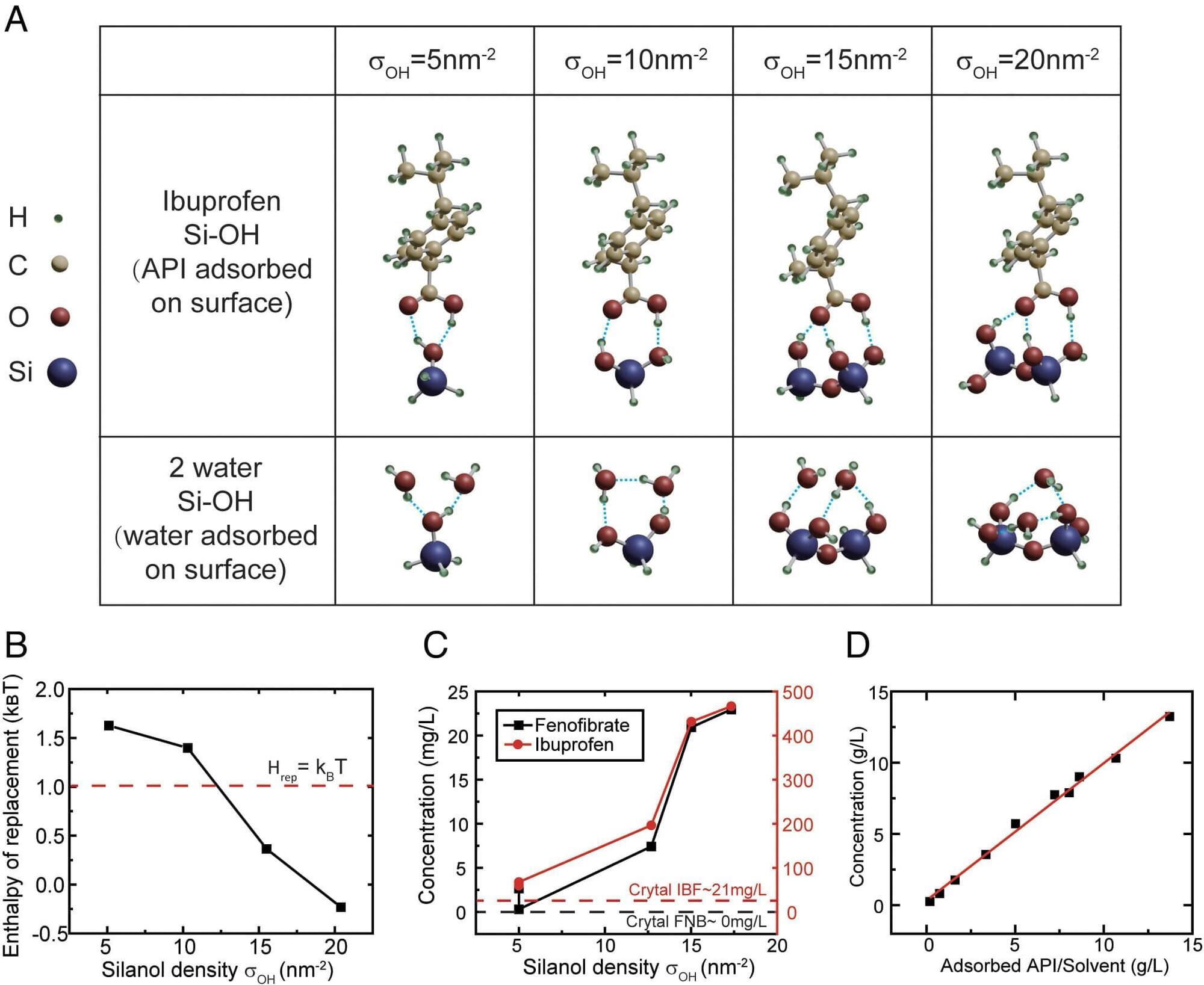Harvard University and the Chinese University of Hong Kong researchers have developed a technique that increases the solubility of drug molecules by up to three orders of magnitude. This could be a breakthrough in drug formulation and delivery.
Over 60% of pharmaceutical drug candidates suffer from poor water solubility, which limits their bioavailability and therapeutic viability. Conventional techniques such as particle-size reduction, solid dispersion, lipid-based systems, and mesoporous confinement often have drug-specific limitations, can be costly to implement, and are prone to stability issues.
The newly developed approach addresses these issues by leveraging the competitive adsorption mechanism of drug molecules and water on engineered silica surfaces. It avoids chemical modification of drug molecules or using additional solubilizing agents to achieve solubility, potentially replacing multiple drug delivery technologies.
